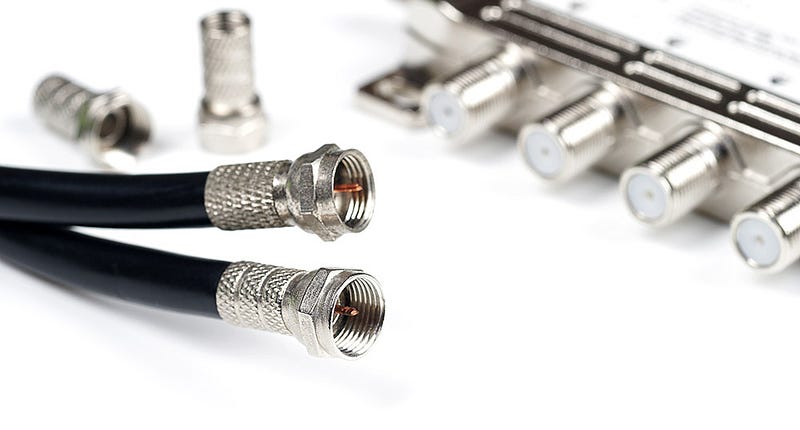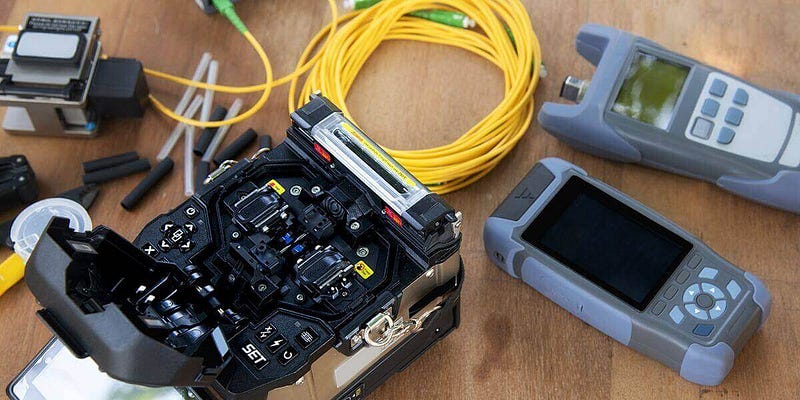milcom's blog
Coaxial cables are vital components of communication systems and have been used for decades. They provide transmission of data between devices such as computers, televisions, telephones, and even wireless networks. At Milcom Institute in Australia, we have all types of coaxial cables to meet your needs.
Coaxial cables come in two major types. The most common type is the coaxial nbn cable. This cable is capable of carrying a high-speed signal and is suitable for both long-distance and short-distance communication applications. The other type is the coaxial cable nbn. This cable is designed for transmitting digital signals and is used for high-speed internet connections such as NBN.
It is important to understand the differences between the two types. Coaxial nbn cable uses copper-coated aluminum wires and is the most durable type of cable, making it ideal for outdoor installations. Coaxial cable nbn, on the other hand, is less durable and is used for indoor applications.

No matter which type of cable you need, Milcom Institute has the right solution for you. We have a wide range of coaxial cables, including shielded and unshielded varieties, to meet all your requirements. We also provide installation and maintenance services to ensure your coaxial cables are running smoothly.
So if you need coaxial cables for your communication needs, Milcom Institute in Australia is the place to go. With our years of experience, we can help you find the right cables for your needs. Contact us today to find out more about our products and services.
Coaxial cables are essential in the communication world, especially in Australia where the National Broadband Network (NBN) relies on them. Coaxial cables are used to route signals from multiple locations, such as TV antennas and modems. As the use of these types of cables have extended to many fields, the Milcom Institute in Australia offers different types of coaxial cables for various purposes.
The basic type of coaxial cable is the RG6, which is suitable for outdoor use, such as for TV antennas. The RG59 is the most commonly used coaxial cable for NBN connections. The RG59 is ideal for short-distance indoor use, as it is less expensive than the RG6. The Mini-Coax is a thinner version of the RG59 and is used in CCTV applications. The Tri-Shield coaxial cable offers more shielding than the RG59 and is used in locations where interference is a bigger issue. The Quad-Shield coaxial cable is even more resistant to interference and is ideal for areas with high EMF interference.
The Milcom Institute also offers a range of specialized coaxial cables, such as the Low dB cable, which reduces signal loss. The Swingline cable is designed for long distance runs and is capable of carrying signals over distances of up to 1,200 feet. The Lo-Skew cable is designed for low-skew applications, such as for digital transmission of voice, video and data signals.
The Milcom Institute offers extensive support when it comes to coaxial cables. They provide installation, maintenance and training services, as well as advice on selecting the right type of coaxial cables for various applications. This makes them the ideal choice
Coaxial cables are essential for good data transmission and are among the most widely used cables in the modern world. At Milcom Institute in Australia, we understand the importance of coaxial cables and the various types of cables available. Coaxial cables are used to connect digital devices such as computers, routers, NBN modems, install TV aerial and satellites.
The types of coaxial cables available for use include RG-6, RG-11, RG-58, and RG-59. RG-6 coaxial cable is the most common for networks and the NBN network. It is suitable for digital audio and video transmission and is used for TV aerials and other data transmission. RG-11 is the thickest and longest coaxial cable available, and works well for long-distance transmissions. RG-58 and RG-59 are thinner than RG-6 and are primarily used for short-distance applications.
Whether you require a coaxial cable for a TV aerial, NBN, or other data transmission, Milcom Institute can provide you with the best coaxial nbn cable available. Our team of experts have the right tools and knowledge to help you choose the right type of coaxial cable for your installation and to install it correctly. Visit our website to learn more about the different types of coaxial cables and their uses.
Coaxial cables have become an integral part of modern telecommunications and electronic data transmission. At Milcom Institute, Australia, we provide world-class coaxial cables for a variety of applications. There are many types of coaxial cables available, including nbn coaxial cables, and each type has specific features and uses.
Coaxial cables are comprised of a single copper conductor with a dielectric insulation layer, and a braided, foil, or aluminum outer shield. The dielectric layer prevents interference between the two conductors, while the shield absorbs any external interference. Coaxial cables are used for a variety of reasons, including transmitting television signals, providing voice and data connections, and providing internet access.
The nbn coaxial cables are specifically designed for connecting to the National Broadband Network (NBN). These cables are high-speed, low-cost data transfer cables, and are typically used in home and commercial applications. The nbn coaxial cables are typically terminated at the customer’s premises using an approved installation technique.
What is important to consider when choosing nbn coaxial cables for your application is the length of the cable and the type of installation. Longer cables require more power and have higher signal loss. For this reason, the length of cables used in residential applications is much shorter than those used in commercial applications.
At Milcom Institute, Australia, we offer a wide range of coaxial cables to meet your needs. Whether you are looking for nbn coaxial cables or other types, we can provide you with the right solution. Contact us today to discuss your requirements.
Becoming a registered, qualified cabler in Australia is not a difficult process. With the help of Milcom Institute’s telecommunications courses, you can achieve your desired goal. Milcom Institute is an Australian based Registered Training Organisation that provides comprehensive cabler training and assessment programs. Their comprehensive cabler training program covers all aspects related to the installation of cabling infrastructure, including the safe use and handling of cabling and electrical equipment. The course covers cable design and installation, network technologies, troubleshooting, and other relevant topics. After completion of the Milcom Institute course, you will be a registered, qualified Cabler in Australia. With the industry-leading certifications and practical experience, you will be well-equipped to take up jobs in the communications and networking field. So, enrol in Milcom Institute’s professional cabler training program today and start your journey towards becoming a registered, qualified cabler in Australia.

Do you want to become a certified and qualified cabler in Australia? If so, Milcom Institute is the place to be. We provide comprehensive telecommunications courses that will help you become a registered and qualified cabler in Australia. Our courses cover all the necessary elements, such as safety practices, cable installation and termination, optical fibre splicing, underground and aerial cabling, and compliance with Australian standard regulations. Our courses are taught by experienced instructors and provide up-to-date information on the latest technologies and industry trends. With our guidance, you’ll be able to gain the skills and knowledge you need to become a professional cabler in no time. Sign up today and become a qualified cabler with Milcom Institute.
Are you looking to become a qualified cabler in Australia? With Milcom Institute’s telecommunications courses, you can become a registered cabler and start a lucrative career in the telecommunications industry.
Milcom Institute offers highly sought after telecommunications courses to teach you the skills to become a qualified cabler. With our courses, you can become an ACMA licensed cabler, building and maintaining cabling infrastructure for telecommunications companies, power companies, and government agencies.
At Milcom Institute, we provide the industry-leading training you need to become a qualified cabler in Australia. Our comprehensive course curriculum covers all the important areas of cabling, including: network cabling, optical fibre cabling, telephone cabling, analogue and digital media cabling, and more. Our in-depth course also covers the installation of customer equipment and the testing of cabling systems.
Our courses also provide you with the ability to upskill and obtain the qualifications you need to pursue a broader career in telecommunications. With our courses, you can become a telecommunications technician and enter the telecommunications industry equipped with the skills and knowledge to thrive.
If you’re interested in becoming a registered, qualified cabler in Australia, look no further than Milcom Institute. Our telecommunications courses are designed to give you the skills and qualifications you need to start a successful career in telecommunications. For more information, contact us today.
Are you looking to become a registered, qualified cabler in Australia? Milcom Institute offers industry-leading telecommunications courses and qualifications to prepare you for a career as a professional cabler. Our experienced tutors can teach you all the skills you need to become a registered, qualified cabler in Australia. With high-quality teaching, learning resources, and support, you can trust us to provide the best education and guidance possible. Our telecommunications courses will give you the confidence and knowledge to excel in the field of cabler. You’ll learn how to safely install, maintain and repair cables and network infrastructure equipment, how to work with copper cable and fibre optics, and you’ll be able to troubleshoot problems quickly and effectively. Milcom Institute also offers flexible learning pathways and customised study plans to meet your individual needs. With our commitment to your success, you can rest assured that you will receive a comprehensive and high-quality education to become a qualified cabler in Australia.
